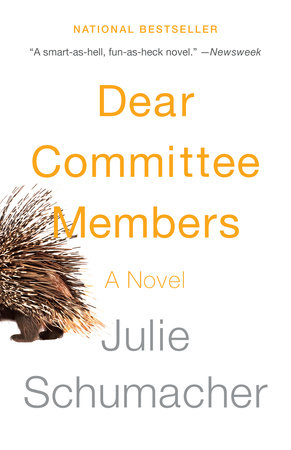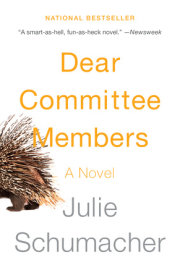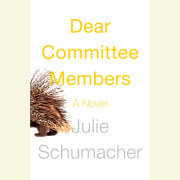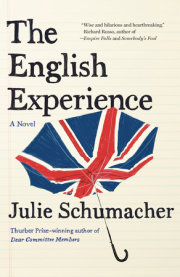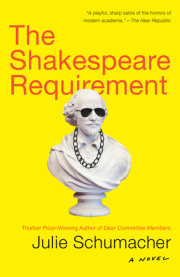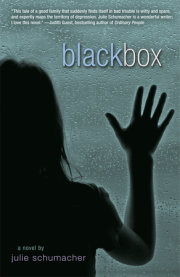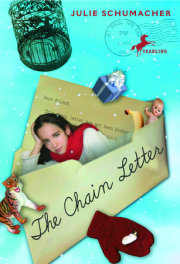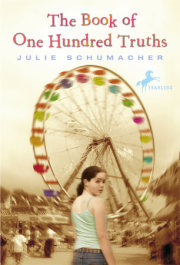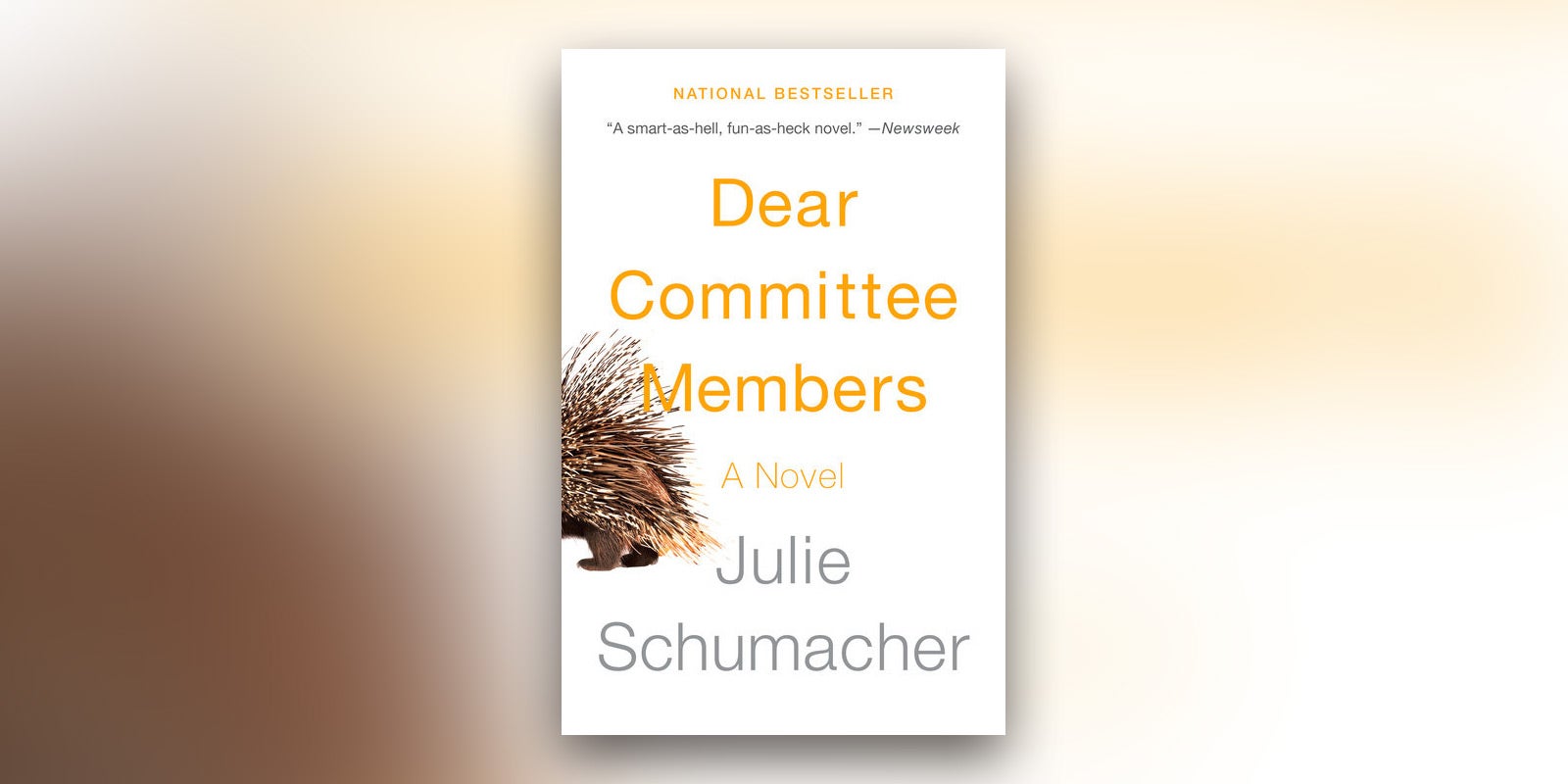September 3, 2009
Bentham Literary Residency Program
P.O. Box 1572
Bentham, ME 04976
Dear Committee Members,
Over the past twenty-odd years I’ve recommended god only knows how many talented candidates for the Bentham January residency--that enviable literary oasis in the woods south of Skowhegan: the solitude, the pristine cabins, the artistic camaraderie, and those exquisite hand-delivered satchels of apples and cheese . . . Well, you can scratch all prior nominees and pretenders from your mailing lists, because none is as provocative or as promising as Darren Browles.
Mr. Browles is my advisee; he’s taken two of my workshops, and his novel-in-progress, a retelling of Melville’s Bartleby (but in which the eponymous character is hired to keep the books at a brothel, circa 1960, just outside Las Vegas), is both tender satire and blistering adaptation/homage. In brief: this tour de force is witty, incisive, original, brutally sophisticated, erotic. You don’t need me to summarize it--you’ll have received his two opening chapters. My agent, Ken Doyle, is apprised of the project and is gnashing his pearly incisors in the hope of receiving the completed manuscript soon. Any additional perks or funding you can provide for Browles during the residency will be appreciated; he’s likely to be wooed by editors all over New York.
A personal aside: I was very sorry to hear of Mike’s death. He was a terrific director, and I always enjoyed talking to him in the row of blue rocking chairs out on the porch during the occasions (too rare!) when I was able to escape my academic duties here in the Midwest and accept his invitations to Bentham. He’ll be terribly hard to replace. Whoever tries to step into them will find he wore sizeable, generous shoes.
In sadness but looking to the future,
Jason T. Fitger
Professor of Creative Writing and English
Department of English
Payne University
September 4, 2009
Theodore Boti, Chair
Department of English
Dear Ted,
Your memo of August 30 requests that we on the English faculty recommend some luckless colleague for the position of director of graduate studies. (You may have been surprised to find this position vacant upon your assumption of the chairship last month--if so, trust me, you will encounter many such surprises here.)
A quick aside, Ted: god knows what enticements were employed during the heat of summer to persuade you--a sociologist!--to accept the position of chair in a department not your own, an academic unit whose reputation for eccentricity and discord has inspired the upper echelon to punish us by withholding favors as if from a six-year-old at a birthday party: No raises or research funds for you, you ungovernable rascals! And no fudge before dinner! Perhaps, as the subject of a sociological study, you will find the problem of our dwindling status intriguing.
To the matter at hand: though English has traditionally been a largish department, you will find there are very few viable candidates capable of assuming the mantle of DGS. In fact, if I were a betting man, I’d wager that only 10 percent of the English instruction list will answer your call for nominations. Why? First, because more than a third of our faculty now consists of temporary (adjunct) instructors who creep into the building under cover of darkness to teach their graveyard shifts of freshman comp; they are not eligible to vote or to serve. Second, because the remaining two-thirds of the faculty, bearing the scars of disenfranchisement and long-term abuse, are busy tending to personal grudges like scraps of carrion on which they gnaw in the gloom of their offices. Long story short: your options aren’t pretty.
After subtracting the names of those who are on leave or close to retirement, and those already serving in the killing fields of administration, you will probably be forced to choose between Franklin Kentrell (NO: spend five consecutive minutes with him and you will understand why); Jennifer Brown-Wilson (a whipping girl for the theory faction--already terrorized, she will decline); Albert Tyne (under no circumstances should you enter his office without several days’ warning--more on this later); Donna Lovejoy (poor overworked creature--I hereby nominate her [anonymously please] with this letter); and me. You’ll soon find that I make myself unpleasant enough to be safe from nomination.
Enfin: Lovejoy will sag under this additional burden, but she will perform.
Ted, in your memo you referred briefly, also, to the need for faculty forbearance during what we were initially told would be the “remodeling” of the second floor for the benefit of our colleagues in the Economics Department.1 I’m not sure that you noticed, but the Econ faculty were, in early August, evacuated from the building--as if they’d been notified, sotto voce, of an oncoming plague. Not so the faculty in English. With the exception of a few individuals both fleet of foot and quick-witted enough to claim status as asthmatics, we have been Left Behind, almost biblically, expected to begin our classes and meet with students while bulldozers snarl at the door. Yesterday afternoon during my Multicultural American Literature class, I watched a wrecking ball swinging like a hypnotist’s watch just past the window. While I am relieved to know that the economists--delicate creatures!--have been safely installed in a wing of the new geology building where their physical comfort and aesthetic needs can be addressed, those of us who remain as castaways here in Willard Hall risk not only deafness but mutation: as of next week we have been instructed to keep our windows tightly closed due to “particulate matter”--but my office window (here’s the amusing part, Ted) no longer shuts. One theory here: the deanery is annoyed with our requests for parity and, weary of waiting for us to retire, has decided to kill us. Let the academic year begin!
Cordially and with a hearty welcome to the madhouse,
Jay
September 9, 2009
Mary Alice Ingersol, Manager
Wexler Foods, Inc.
65409 Capitol Drive
Maplewood, MN 55109
Dear Ms. Ingersol,
This letter is intended to bolster the application to Wexler Foods of my former student John Leszczynski, who completed the Junior/Senior Creative Writing Workshop three months ago. Mr. Leszczynski received a final grade of B, primarily on the basis of an eleven-page short story about an inebriated man who tumbles into a cave and surfaces from an alcoholic stupor to find that a tentacled monster--a sort of fanged and copiously salivating octopus, if memory serves--is gnawing through the flesh of his lower legs, the monster’s spittle burbling ever closer to the victim’s groin. Though chaotic and improbable even within the fantasy/horror genre, the story was solidly constructed: dialogue consisted primarily of agonized groans and screaming; the chronology was relentlessly clear.
Mr. Leszczynski attended class faithfully, arriving on time, and rarely succumbed to the undergraduate impulse to check his cell phone for messages or relentlessly zip and unzip his backpack in the final minutes of class.
Whether punctuality and an enthusiasm for flesh-eating cephalopods are the main attributes of the ideal Wexler employee I have no idea, but Mr. Leszczynski is an affable young man, reliable in his habits, and reasonably bright.
You might start him off in produce, rather than seafood or meats.
Whimsically,
Jason T. Fitger, Professor of Creative Writing/English
Payne University
September 14, 2009
Ted Boti, Resident Sociologist and Chair
Department of English
Dear Ted:
You’ve asked me to write a letter seconding the nomination of Franklin Kentrell for Payne’s coveted Davidson Chair. I assume Kentrell is behind this request; no sane person would nominate a man whose only recent publications consist of personal genealogical material and who wears visible sock garters in class--all he lacks is a white tin basin to resemble a nineteenth-century barber.
But if you want me to endorse his nomination in order to keep him quiet and away from your office (you will find him as persistent and maddening as a fly), you may excerpt the following sentences and affix my name to them: “Professor Franklin Kentrell has a singular mind and a unique approach to the discipline. He is sui generis. The Davidson Chair has never seen his like before.”
A word on the call for official, written letters of recommendation, Ted: I hope for the sake of all concerned you will cut back on these as much as possible. The LOR has become a rampant absurdity, usurping the place of the quick consultation and the two-minute phone call--not to mention the teaching and research that faculty were supposedly hired to perform. I haven’t published a novel in six years; instead, I fill my departmental hours casting words of praise into the bureaucratic abyss. On multiple occasions, serving on awards committees, I was actually required to write LORs to myself.
Keeping my temper under wraps for the present,
Jay
P.S.: I couldn’t help but notice, following the departure of the economists, that our Tech Help office has been largely vacated as well, a single employee--the appropriately named Mr. Duffy Napp--left behind to respond to faculty requests for computer assistance. This surly somnambulist rarely deigns to answer the most basic of questions and treats with exhausted dismay any individual who is not a specialist in computer arcana. Might it be possible to exchange “the Napper” for someone more civil and less lethargic?
P.P.S.: Thank you for your attention to my office window, which now closes, but due to an impressive crack in the frame--presumably caused by the earsplitting construction on the second floor--rainwater is trickling merrily down the inside of the glass and, as I type these words, entering the rusted slats of the heater. You might want to send someone to take a look.
September 17, 2009
Bentham Literary Residency Program
P.O. Box 1572
Bentham, ME 04976
Dear Overworked Committee Members,
Ms. Vivian Zelles has asked me--three days before your application deadline--to recommend her to your January residency program at Bentham, and herewith I oblige.
Ms. Zelles is an apt and diligent writer, a second-year graduate student in comparative literature currently enrolled, as a sort of academic stowaway, in my fiction workshop. Her project, to date, consists of a series of short, linked narratives on the subject of childhood and family and female relationships, romantic and otherwise. The work is young and presumably autobiographical; still, one can discern a spark of energy here and there in the occasional quirks of the tone. Ms. Zelles is not among the top tier of students I generally prefer to send your way (e.g., Darren Browles--see my LOR of September 3), but in the coming year or two her work may mature.
Feel free to contact me for further information via phone or e-mail. And forgive the brevity of this letter: I do believe that student writing speaks for itself, and though the academic year has just started I fear I am already losing the never-ending battle to catch up with the recommendations requested of me. Suffice it to say that the LOR has usurped the place of my own work, now adorned with cobwebs and dust in a remote corner of my office.
Continuing to wish you well with the search for a new director,
Jason T. Fitger
Professor of Creative Writing and English
Payne University
September 22, 2009
Payne University Law School Admissions
c/o Janet Matthias (aka Janet Matthias-Fitger)
17 Pitlinger Hall
Dear Admissions Committee Members--and Janet:
This letter recommends Melanie deRueda for admission to the law school on the well-heeled side of this campus. I’ve known Ms. deRueda for eleven minutes, ten of which were spent in a fruitless attempt to explain to her that I write letters of recommendation only for students who have signed up for and completed one of my classes. This young woman is certainly tenacious, if that’s what you’re looking for. A transfer student, she appears to be suffering under the delusion that a recommendation from any random faculty member within our august institution will be the key to her application’s success.
Janet: I know your committees aren’t reading these blasted LORs--under the influence of our final martini in August you told me as much. (I wish I had an ex-wife like you in every department; over in the Fellowship Office, the formerly benevolent Carole continues to maintain an icy distance. I should think her decision to quit our relationship would have filled her with a cheerful burst of self-esteem, but she apparently views the end of our three years together in a different light.)
Ms. deRueda claims to be sending her transcripts and LSAT scores at the end of the week. God help you--this is your shot across the bow--should you admit her.
Still affectionately your one-time husband,
Jay
P.S.: I’ve heard a rumor that Eleanor--yes, that Eleanor, from the Seminar--is a finalist for the directorship at Bentham. You got back in touch with her despite her denouncements of me; do you have any intel?
P.P.S.: A correction: you got back in touch with Eleanor because she denounced me. I remember you quoting what she said when I published Transfer of Affection: that I was an egotist prone to repeating his most fatal mistakes. I’ll admit to the egotism--which is undeniable--but I’d like to think that, after fourteen years of marriage, you knew me better than Eleanor did. We were happy for some of those fourteen years, especially before Transfer; why shouldn’t I believe that you were right about me, too?
September 30, 2009
Field-Bantry College of Government and Public Affairs
Office of Graduate Admissions
447 Peck Hall
Whaylon, PA 19522
Dear Committee Members,
This letter recommends Ms. Stella Castle to your graduate institution in the field of public policy. And to begin this recommendation on the proper footing: no, I will not fill out the inane computerized form that is intended to precede or supplant this letter; ranking a student according to his or her placement among the “top 10 percent,” “top 2 percent,” or “top 0.000001 percent” is pointless and absurd. No faculty member will rank any student, no matter how severely lacking in ability or reason, below “top 10 percent.” This would be tantamount to describing the candidate in question as a witless beast. A human being and his or her caliber, intellect, character, and promise are not reducible to a check mark in a box. Faced with a reductionist formula such as yours, I despair for the future, consoling myself with the thought that I and others of my generation, with its archaic modes of discourse, won’t live to see the barren cyberworld the authors of your recommendation form are determined to create.
Ms. Castle was a student in my American Literature Survey a year ago. She is a serious-minded young woman whose analytical skills and arguments demonstrate a subtle acumen. More than once, in class, I saw her politely demolish another student’s interpretation of a work of literature by asking a series of seemingly innocent but progressively incisive questions. Perhaps oddly, I remember thinking of Ms. Castle as a highly articulate snake: sliding gracefully into an argument, speaking in lucid, sibilant phrases (she endows the letter S with the faintest suggestion of a whistle), and then striking to inject the requisite venom.
Ms. Castle wrote a final, exquisite essay on Willa Cather’s The Professor’s House--probably a lost tome as far as you policy wonks are concerned--on which she received a well-deserved A.
I recommend her to you very highly. She is excellent. She will not fit into any of your miniature boxes. I will now insert this letter in an envelope, maintaining a paper copy for safekeeping in a drawer by my desk, after which I will take a short stroll to the picturesque blue mailbox on the corner, opening its creaking rectangular metal mouth and dropping the envelope within.
Trusting the U.S. Postal Service to deliver this missive to you in a timely fashion, I am
J. Fitger
Professor and Upholder of the Ancient Flame
Payne University
1 Under whose aegis was it decided that Economics and English should share a building? Were criteria other than the alphabet considered?
Copyright © 2014 by Julie Schumacher. All rights reserved. No part of this excerpt may be reproduced or reprinted without permission in writing from the publisher.

